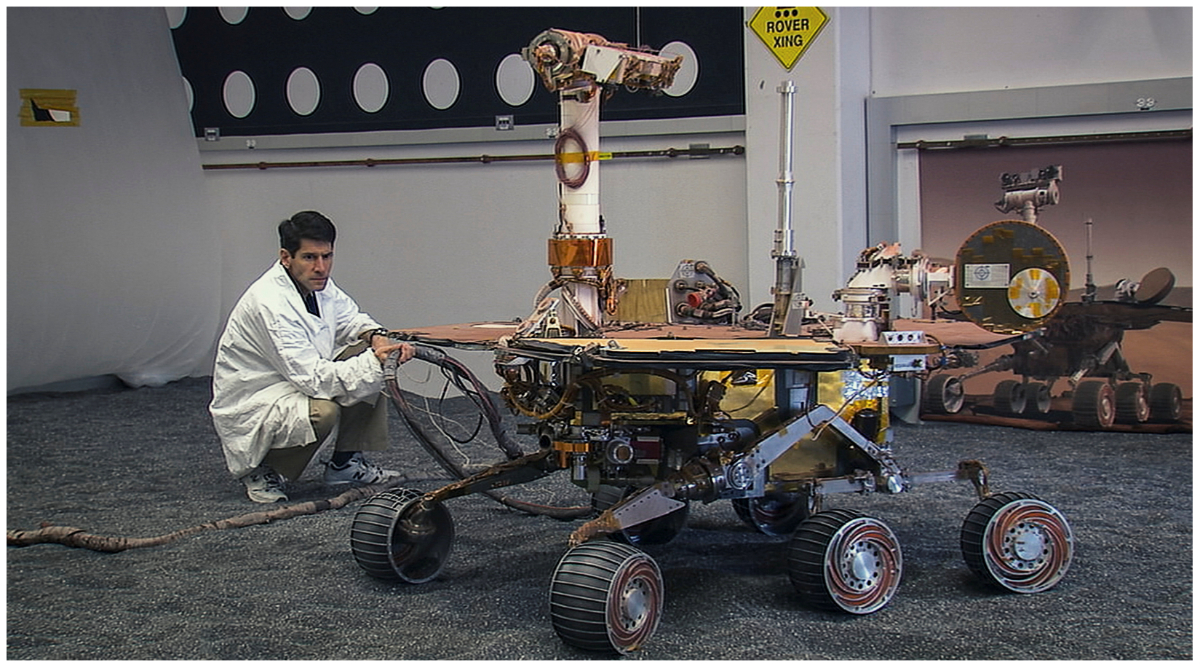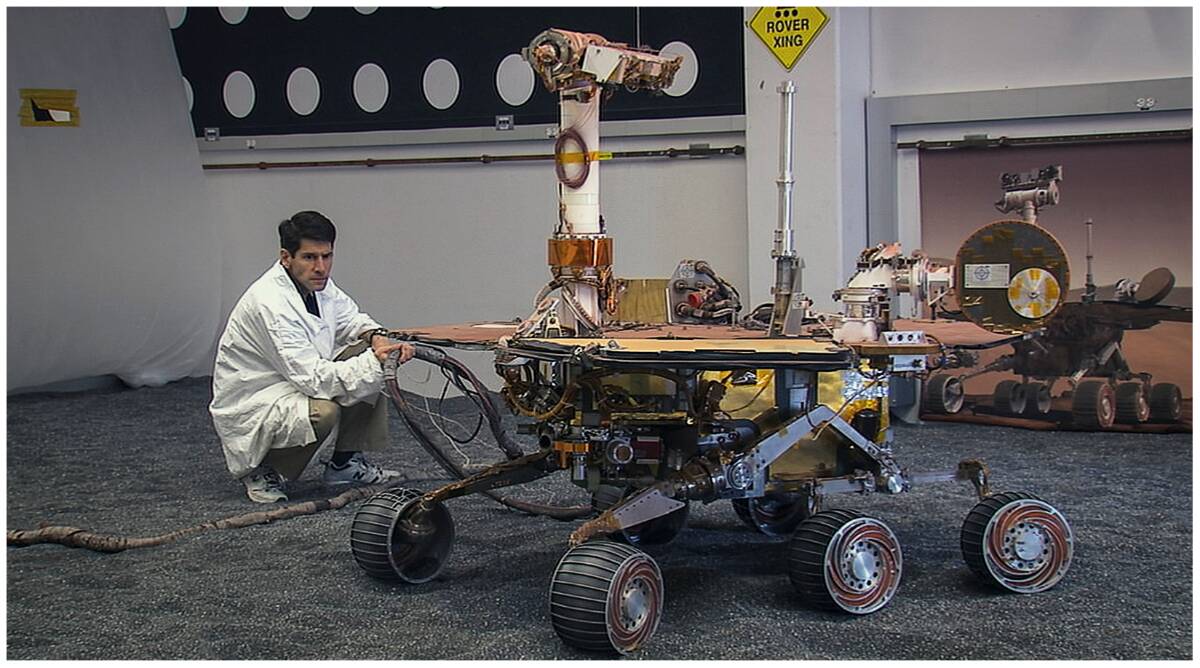
For a movie about a space mission — a real one, not the kind Akshay Kumar would oversee — the new documentary Good Night Oppy treats the subject of science as a teenager with an artistic bent would. It finds meaning in ones and zeroes, it romanticises the natural phenomenon of rusting, and philosophises about a failed virtual connection. More than a science documentary, Good Night Oppy is an elegiac biopic; one that just happens to be about a robot.
The film begins in the early 2000s, when NASA was putting together a new mission to Mars in the hope of finding water, and subsequently life. We watch as a crack team of scientists both young and old get together to create two sister robots. They name them Spirit and Opportunity. Almost immediately, the scientists talk about the robots as if they were humans. They fondly refer to Opportunity as ‘Oppy’, which is only the beginning of its anthropomorphisation. “She has a mind of her own,” one person says of ‘her’. When Oppy malfunctions during an experiment, another scientist says that she ‘needs to be given love.’ It’s all very cute, of course; and deliberate.
Directed by Ryan White, who previously helmed a handful of excellent documentaries about a diverse slate of subjects — true crime, gay rights, and North Korean spies — Good Night Oppy can best be described as a real-life Pixar movie. Co-produced by Steven Spielberg’s Amblin and featuring gorgeous visual effects by George Lucas’ Industrial Light & Magic, the film combines archival footage with sweeping CGI landscapes of Mars.
Blake Neely could very well have hacked into John Williams’ hard drive while composing the score; such are the tonal similarities. I could have sworn, at one point, that I heard the opening notes of Williams’ Jurassic Park theme. But like the rest of the movie, the music, too, is an approximation of the warm-hearted nostalgia that White is selling. Older audiences might find this a bit too saccharine, but I’d imagine that children, particularly the more curious ones, might be inspired by the film’s sentimental view of science and exploration.
Subscriber Only Stories
Good Night Oppy
Director – Ryan White
Cast – Angela Bassett
Rating – 3.5/5








